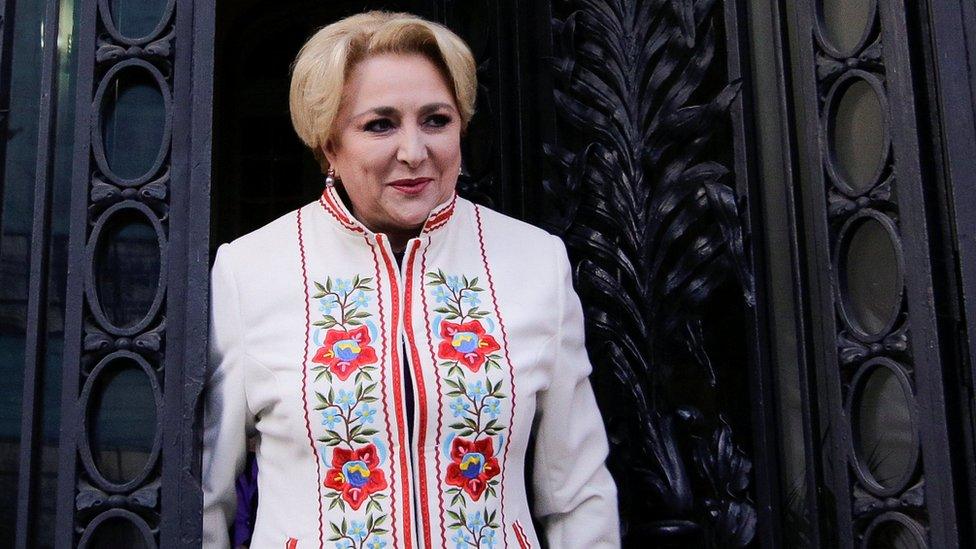Romania to have first female prime minister, Viorica Dancila
- Published

Viorica Dancila is an ally of PSD leader Liviu Dragnea
Viorica Dancila has been named as Romania's first female PM following the sudden resignation of Mihai Tudose.
Ms Dancila, a member of the European Parliament, is regarded as an ally of the governing Social Democratic Party (PSD) leader Liviu Dragnea.
President Klaus Iohannis says he wants her appointment approved quickly by parliament and a new government in place by 1 February.
Ms Dancila, 54, is Romania's third prime minister in seven months.
The PSD has been gripped by a power struggle which also claimed former PM Sorin Grindeanu in June.
"For me it's very clear that the Social Democrats have a majority... so I weighed all the arguments and decided to name their proposal [Ms Dancila] for premier," Mr Iohannis said after announcing the appointment.
Ms Dancila has served in the European Parliament since 2009. Mr Dragnea described her as "a respected MEP in Brussels... who doesn't seek conflict, is communicative and has good relations with the [European] Commission".
Why did Mihai Tudose resign?
Mr Tudose quit on 15 January after his own party withdrew its backing.
Reports say he fell out with Mr Dragnea after sparring with Interior Minister Carmen Dan, a Dragnea ally.
Mr Tudose said he he was leaving "with his head high".
"I did not want to break the party," he said. "They named me, they removed me. I take responsibility for my deeds and I do not regret anything in my actions [as prime minister]."
Who is Liviu Dragnea?
PSD leader Liviu Dragnea is barred from becoming prime minister because of a conviction
Mr Dragnea has been in politics for more than two decades. He has served as a cabinet minister but was barred from becoming prime minister in 2015 because of a conviction for ballot-rigging during a 2012 referendum.
He was given a one-year suspended prison sentence, later increased to two years.
Prosecutors are also investigating allegations that he illicitly obtained EU funds during his time in local politics in Teleorman, in 2000-2012. He denies wrongdoing, saying the allegations are politically motivated.
- Published9 July